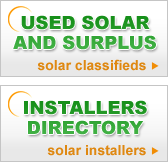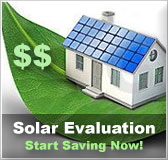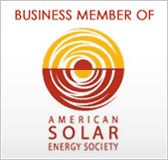
|
Delaware residential solar energy incentives
Green energy program incentives These incentives are funded by three separate state rebate programs
including: Green Energy Fund through Delmarva Power and Light, Delaware Electric Cooperative (DEC) Renewable Resources Fund, and Municipal Utility Green Energy Fund.
Net-metering Net metering is available to any customer of Delaware Power and Light or Delmarva Electric Cooperative that generates electricity using solar, wind or hydro resources, anaerobic digesters, or fuel cells powered by renewable fuels. The maximum capacity of a residential system is 25 kilowatts.Credited amounts are based on per kilowatt-hours equal to the sum of delivery service charges and supply service charges for residential customers. These credits are added to the customer’s following monthly bill.Systems must be intended primarily to offset all or part of a customer's electricity requirements. Residential Renewable Energy Tax Credit This personal tax credit allows the taxpayer to claim a credit of 30% of expenditures including labor costs and installation of qualified residential solar-electric systems, solar water heating systems or fuel cells. Small wind-energy systems and geothermal heat pumps can also be accredited for. Solar-electric systems and solar water heaters have a maximum incentive of $2,000 if placed in service before 2009. There is no maximum incentive for systems placed after 2008. The excess amount of the federal tax credit may be carried forward to the next taxable year if it exceeds tax liability. This can be carried forward until 2016, but after that, it is unknown if the unused credit will be able to be forwarded. Residential Energy Conservation Subsidy Exclusion This is a personal exemption of 100% of energy conservation subsidies provided by public utilities. The value of a purchase or installation of any energy conservation measure by a customer such as solar water heat, solar space heat or photovoltaics will not be included in the customer’s gross income.Customers of an electric utility company, who participate in the utility’s energy conservation program, may receive a rate reduction of electricity furnished or a nonrefundable credit against the purchase price of the electricity on each monthly electric bill. Energy-Efficient Mortgages This is a federal loan program where homeowners can use EEM (energy-efficient mortgages) to finance renewable energy technologies in a home.  |






